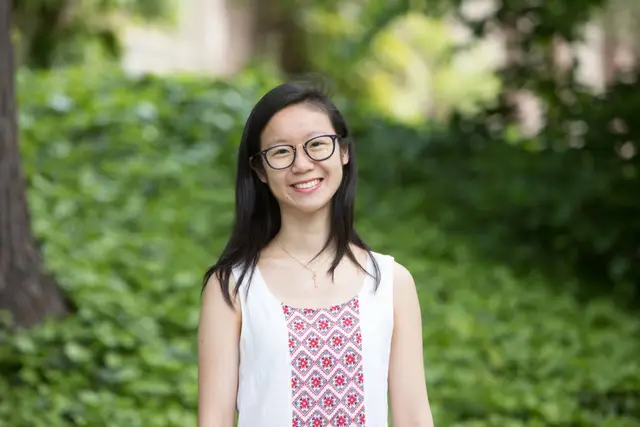Star Formation Project Launches High School Student into Astrophysics at Princeton
3 minute read
Arul started his Polygence astrophysics project as a junior in high school and completed it in the summer of his senior year. Specifically, he worked with his mentor, Imad P, to determine the rates at which stars are forming in a group of nearby galaxies. Read on to learn more about his inspiring project and see how it helped Arul get into (and thrive at) Princeton.
A project about star formation
Using publicly available data about the wavelengths emitted by local galaxies, Arul wrote Python code to calculate each galaxy’s flux (the brightness or intensity of its light). He concentrated on two types of light wavelengths that are good indicators of star formation activity: the H-alpha recombination band and the far ultraviolet (FUV) band. He then converted flux to luminosity based on the galaxy’s distance. Using his calculated luminosity and constants (found online), Arul was able to determine the star formation rate (SFR) for each galaxy.
When he plotted stellar mass data for each galaxy against his SFR results, he got an exciting correlation coefficient of 0.9955. (This is exciting because a correlation coefficient of +1 indicates a perfect positive correlation). This result solidified his hypothesis that a relationship between stellar mass and SFR exists. He did find one outlier (one smaller galaxy with a very high star formation rate) but was able to justify it by going back and studying that galaxy’s proximity to M81, a massive galaxy that impacts neighbors with its powerful gravitational forces.
How Arul used his Polygence project on his college application
Arul had read about a few professors doing similar SFR research at Princeton, and so as a response to the “Why Princeton?” question, he was able to connect his own study to the ongoing research at the Princeton Plasma Physics Laboratory. He also wrote about how his Polygence experience and presentation made him a possible contributor to the Princeton undergraduate research journal. These were smart moves! We’ve talked in the Polygence blog about the importance of relating your interests to opportunities on campus. And apparently, it worked for Arul because he got in.
In other college applications, Arul also wrote about how his Symposium Presentation enabled him to transform something very specific and highly technical into something anyone can understand and that it represented his own journey from a newbie to expert.
The impact Arul’s project had on his freshman year in college and beyond
When we asked Arul how his Polygence project had impacted his first year at Princeton, Arul told us that there were “lots of transferable technical skills that I got to apply to my freshman year physics coursework.” Having used the SAO DS9 galaxy viewer for his Polygence project, he felt very comfortable using similar software at school, software that most of his peers were only learning for the first time. His experience on his star formation project even influenced his decision to major in physics.
He will continue his space research with a similar physics internship this summer with Professor Susanne Staggs. Instead of SFR, he will focus on CMB, which means Cosmic Microwave Background. He will still be analyzing data points from a particular telescope, the way he did with his star formation project, but this time his focus will be on dark energy and dark matter, and how they impact CMB. He is also going to be applying his data gathering and analysis to another burgeoning interest of his: investment banking. He is doing a second internship later in New York City, creating algorithms to chart out what emerging markets need.
Go Arul!
Be it in banking or astrophysics or both, we’re confident you have a stellar future ahead of you. If you’re feeling inspired by Arul to pursue your own interests with a Polygence mentor, check out the mentors listed under your areas of interest and explore past student projects.
Want to start a project of your own?
Click below to get matched with one of our expert mentors who can help take your project off the ground!
